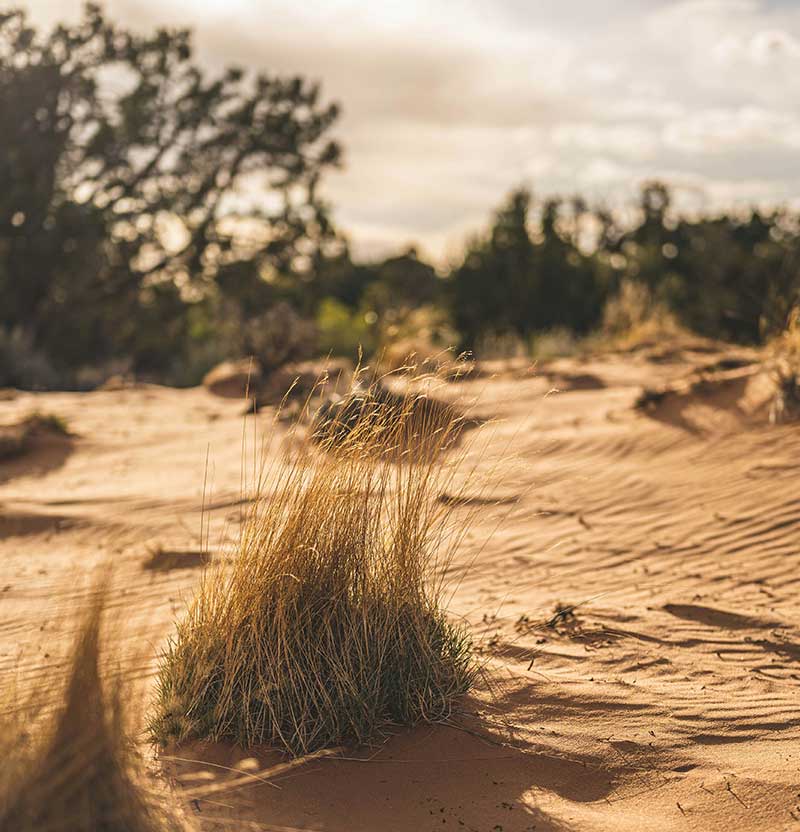
Climate Change Resources
Climate versus Weather:
What is the difference between climate and weather? Does the air feel hotter or colder today than it did this same day last year? When you think about temperature or rainfall, recent weather events are probably the freshest in your mind. These events can change quickly — who knows what the temperature or precipitation will be next week?! That’s weather.
Climate is very different than your day-to-day weather. Climate tells you the average pattern of temperature in your region. The average is from years and years of data. For example, imagine that you got data on the high temperature each day of July for 50 years or more in Window Rock, Arizona. The average of those daily highs would be about 84.3°F (29.0°C). While some days surely had high temperatures in the 90s, other days were probably in the low 80s. Still, the average temperature of 84.3°F is what you might expect or even predict the temperature to be in Window Rock in July. Another climate indicator for July in Window Rock is average precipitation, which is 1.7 inches of rain.
Questions about climate aren’t just local though. They are global. Weather is local. Questions about climate span the earth. They affect us all in some way. We’re all connected through interactions among the land, oceans, and atmosphere. If you want to understand climate better, you have to learn about these interactions.
Federal and International Sources
U.S. Environmental Protection Agency (EPA) — Climate change home page
www.epa.gov/climatechange/index.html
National Aeronautics and Space Administration (NASA) — Global Climate Change home page
http://climate.nasa.gov/
National Oceanic and Atmospheric Administration (NOAA) — Climate program
www.noaa.gov/climate.html
Center for Disease Control (CDC) — Climate change and public health
www.cdc.gov/climatechange/about.htm
Intergovernmental Panel on Climate Change
http://ipcc.ch/
Academic/University Sources
Northern Arizona University — Institute for Tribal Environmental Professionals, Tribes and Climate Change
https://itep.nau.edu/tribes-climate-change/
University of Arizona — Climate Assessment for the Southwest (CLIMAS) Program
www.climas.arizona.edu/
The University of Maine — Climate Change Institute
http://climatechange.umaine.edu/
Stanford University — Global Climate and Energy Project
http://gcep.stanford.edu/
Downloadable Reports
NOAA — Climate Literacy: The Essential Principles of Climate Science
www.noaanews.noaa.gov/stories2009/20090318_climateliteracy.html
IPCC — Climate Change 2007: Synthesis Report
www.ipcc.ch/publications_and_data/publications_ipcc_fourth_assessment_report_synthesis_report.htm
Recommended Reading
National Geographic Special Report, “Changing Climate: What you should know, What you can do” June 22, 2008.
National Geographic, “Global Warning: Bulletins from a Warmer World” September 2004.
Global Warming: The Complete Briefing (4th Ed.), Houghton, J. Cambridge University Press, 2009.
“The Down-to-Earth Guide to Global Warming” by Laurie David and Cambria Gordon, Scholastic 2007.
How We Know What We Know About Our Changing Climate: Scientists and Kids Explore Global Warming by Lynne Cherry and Gary Braasch, Dawn Publications 2008.
News Resources
High Country News, Climate Change and the West
www.hcn.org/hot-times/
Teacher Resources
The GLOBE Program
http://globe.gov/
Grant, Tim and Gail Littlejohn (Eds.). (2001). Teaching About Climate Change: Cool Schools Tackle Global Warming. New Society Publishers.
Global Warming and the Greenhouse Effect, Lawrence Hall of Science, University of California at Berkeley.

